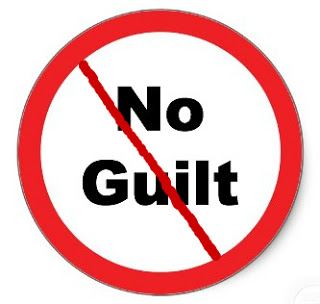 “The most awful thing happened to me last week,” Francis begins. “I was walking out of Macy’s and a security guard stopped me. He asked me to open my purse. I looked at him like he was crazy and asked why. I even wondered if he was a security guard or if he was just wearing the uniform and wanted to steal my wallet or something. He kept insisting. I asked him if he thought I stole something which mortified me and he just kept asking me to open my purse. I finally did and he looked through everything. I felt like a thief. And then he said, ‘Thank you, ma’am, I guess there was a mistake.’ I was shaking. I ran out of the mall. When I got into my car I burst into tears. It was awful. And now I can’t stop thinking about it. I replay it over and over in my head.”
“The most awful thing happened to me last week,” Francis begins. “I was walking out of Macy’s and a security guard stopped me. He asked me to open my purse. I looked at him like he was crazy and asked why. I even wondered if he was a security guard or if he was just wearing the uniform and wanted to steal my wallet or something. He kept insisting. I asked him if he thought I stole something which mortified me and he just kept asking me to open my purse. I finally did and he looked through everything. I felt like a thief. And then he said, ‘Thank you, ma’am, I guess there was a mistake.’ I was shaking. I ran out of the mall. When I got into my car I burst into tears. It was awful. And now I can’t stop thinking about it. I replay it over and over in my head.”
Francis is a conventional woman nearing fifty who came into therapy when the last of her children left for college, wondering what was next for her in life. “It sounds awful. Can you say a bit more about what you felt?” I ask.
“Humiliated. I couldn’t believe this was happening to me. How could anyone think I’m a thief? And I felt scared. Like I said I wondered if the security guard was an imposter and if he’d rob me. I know how crazy that sounds, but it didn’t seem any crazier than me stealing something.”
Francis was the “good girl” who evolved into the “good wife and mother.” It is hard to imagine her doing anything rebellious, let alone illegal. “Did you feel angry as being unjustly accused?”
“I guess I did. You know I don’t do anger very well.”
“And since the incident, what is it that you feel when you replay it in your head?”
“The same thing, humiliated and scared. I don’t feel the anger all that much.”
“Does the incident remind you of anything in your past?”
“No! I never stole anything in my life, if that’s what you mean.”
“No. That wasn’t what I meant. What made you think I was suggesting that?”
“I don’t know,” she says, starting to cry. “I just feel so awful. I feel like a criminal. I feel dirty. I know it’s crazy. It was a mistake. I need to let it go.”
“So you understand that what you’re feeling is an overreaction, but we need to figure out what’s causing that overreaction. I’d say it was something from your past, something that made you feel guilty or ashamed or both. That doesn’t mean you did anything wrong. You could feel you did something wrong even if you didn’t.”
“When you just said I didn’t do anything wrong, I felt this tremendous relief, like a burden was taken from me. But I have no idea why. What do I feel so guilty about? What did I do that was so bad? I was always the good kid.”
 Various of my childhood and adolescent transgressions flit through my mind: blaming a friend’s sister for my mischief, wearing make-up when I wasn’t allowed to, lying about having a boyfriend. I don’t carry guilt for any of these infractions, but I’m sure far more serious “sins” exist in the cauldron of both my and my patient’s unconscious. “It doesn’t have to be anything you did, Francis. It could be something you wished for or dreamt about. It could be a fleeting thought, like ‘I wish you were dead.’”
Various of my childhood and adolescent transgressions flit through my mind: blaming a friend’s sister for my mischief, wearing make-up when I wasn’t allowed to, lying about having a boyfriend. I don’t carry guilt for any of these infractions, but I’m sure far more serious “sins” exist in the cauldron of both my and my patient’s unconscious. “It doesn’t have to be anything you did, Francis. It could be something you wished for or dreamt about. It could be a fleeting thought, like ‘I wish you were dead.’”
“I killed my younger sister’s turtle,” Francis blurts out. “It was an accident. The turtle got out of its little house and I accidentally crushed it with my rocking chair. My sister was really mad. She said I was a murderer. My mother was mad too. I kept saying it was an accident, but they didn’t believe me.”
“Another example of being blamed when you didn’t do anything wrong.”
Francis hesitates then quietly says, “I didn’t like that turtle. It smelled bad. And I don’t like things that crawl around like that. But it was an accident. I didn’t deliberately kill it.”
I wonder if the turtle is a stand-in for Francis’ childhood feelings about her sister – something that smells bad and crawls around – but I decide to leave that interpretation for another day. “But it sounds like you still felt guilty, both because you might have wished the turtle dead and because your sister and mother were so angry.”
“But I didn’t do anything wrong,” she has almost plaintively.
“No, you didn’t do anything wrong,” I say. I suspect this “good girl” has many forbidden thoughts and feelings, but that too is for another day.
![]()